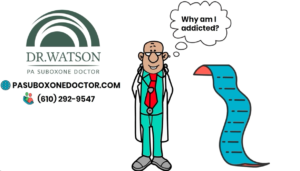Understanding Alcohol Use Disorder
Alcohol Use Disorder (AUD) is a chronic medical condition characterized by the compulsive and problematic consumption of alcohol. It is a complex disorder that affects individuals physically, mentally, and emotionally. Understanding AUD is crucial for recognizing the need for treatment and seeking the necessary help.
What is Alcohol Use Disorder?
Alcohol Use Disorder is a term used to describe a range of problematic drinking patterns. It is diagnosed based on criteria outlined in the Diagnostic and Statistical Manual of Mental Disorders (DSM-5). Some common symptoms of AUD include:
- Cravings or a strong desire to consume alcohol
- Difficulty controlling or limiting alcohol intake
- Continued alcohol use despite negative consequences
- Development of tolerance (needing more alcohol to achieve the desired effect)
- Experience of withdrawal symptoms when alcohol use is reduced or stopped
The severity of AUD can range from mild to severe, depending on the number of symptoms present. Understanding the signs and symptoms of AUD is essential in recognizing the need for intervention and treatment.
The Importance of Seeking Treatment
Seeking treatment for Alcohol Use Disorder is crucial for several reasons. Firstly, AUD is a chronic condition that tends to worsen over time if left untreated. It can lead to various physical and mental health complications, including liver disease, cardiovascular problems, and increased risk of mental health disorders.
Secondly, treatment for AUD can help individuals regain control over their lives and improve their overall well-being. It provides the necessary support, resources, and guidance to address the root causes of the disorder and develop healthier coping mechanisms.
Treatment for AUD often involves a combination of approaches, including detoxification, counseling, therapy, and support groups. Detoxification, which is the focus of this article, is the initial step in the treatment process and aims to safely manage and alleviate withdrawal symptoms.
By understanding what Alcohol Use Disorder is and recognizing the importance of seeking treatment, individuals can take the first step towards recovery. If you’re interested in learning more about alcohol withdrawal symptoms, the long-term effects of alcohol abuse, or outpatient treatment programs, check out our relevant articles on alcohol withdrawal symptoms, long-term effects of alcohol abuse, and outpatient alcohol treatment programs.
The Process of Alcohol Detoxification
Alcohol detoxification is a crucial step in the treatment of alcohol use disorder. This process involves removing alcohol from the body and managing the withdrawal symptoms that occur when an individual stops drinking. In this section, we will explore the definition and purpose of alcohol detoxification, highlighting its significance as the first step in treatment.
Definition and Purpose of Alcohol Detoxification
Alcohol detoxification, also known as alcohol detox, is the process of eliminating alcohol from the body while managing the physical and psychological effects of withdrawal. The primary objective of detoxification is to safely and effectively navigate through the withdrawal phase, ensuring the individual’s physical stability and preparing them for further treatment.
Alcohol detoxification is essential because abruptly stopping alcohol consumption can lead to a range of withdrawal symptoms, some of which can be severe and potentially life-threatening. These symptoms may include tremors, nausea, anxiety, hallucinations, and seizures. By undergoing detoxification under medical supervision, individuals can receive the necessary support and care to manage these symptoms and minimize potential complications.
Detoxification as the First Step in Treatment
Detoxification serves as the initial step in the treatment of alcohol use disorder. It sets the foundation for long-term recovery by addressing the physical dependence on alcohol and preparing individuals for ongoing treatment interventions.
During the detoxification process, medical professionals closely monitor and assess the individual’s vital signs, withdrawal symptoms, and overall health. This close supervision ensures that any potential complications are promptly identified and treated. In some cases, medications may be administered to alleviate the severity of withdrawal symptoms and promote a safer detoxification process.
It’s important to note that detoxification alone is not sufficient to achieve lasting recovery from alcohol use disorder. While detoxification addresses the physical aspects of addiction, comprehensive treatment that includes therapy, counseling, and support is necessary to address the underlying psychological and behavioral factors associated with alcohol use disorder. For more information on the long-term effects of alcohol abuse and available treatment options, visit our article on long-term effects of alcohol abuse.
By recognizing the importance of alcohol detoxification as the first step in treatment, individuals can take the necessary steps towards overcoming alcohol use disorder. Detoxification provides a safe and supportive environment for individuals to begin their recovery journey and lays the groundwork for ongoing treatment and support.
Medical Supervision during Alcohol Detoxification
During the process of alcohol detoxification, it is essential for individuals to undergo medical supervision. This section will explore the reasons why medical supervision is necessary and the medications commonly used during alcohol detoxification.
Why Medical Supervision is Necessary
Medical supervision is crucial during alcohol detoxification due to the potential risks and complications that can arise. Withdrawal symptoms can vary in severity depending on the individual’s level of alcohol dependence. In some cases, withdrawal symptoms can be life-threatening. Medical professionals closely monitor and manage these symptoms to ensure the safety and well-being of the individual undergoing detoxification.
Medical supervision also provides emotional support and helps individuals cope with the challenges they may face during the detoxification process. Having a healthcare team available to address concerns, provide guidance, and offer encouragement can significantly increase the chances of a successful detoxification experience.
Medications Used in Alcohol Detoxification
Medications are commonly used during alcohol detoxification to alleviate withdrawal symptoms, minimize discomfort, and reduce the risk of complications. The specific medications prescribed will depend on individual circumstances and the severity of withdrawal symptoms. It’s important to note that medication-assisted treatment should always be administered under the supervision of a medical professional.
Here are some medications commonly used during alcohol detoxification:
| Medication | Purpose |
|---|---|
| Benzodiazepines | These medications help alleviate alcohol withdrawal symptoms, such as anxiety, insomnia, and seizures. They work by acting on the central nervous system to produce a calming effect. Examples include diazepam (Valium) and chlordiazepoxide (Librium). |
| Anticonvulsants | Anticonvulsant medications may be prescribed to individuals who are prone to seizures during alcohol withdrawal. These medications help prevent and manage seizure activity. Examples include carbamazepine (Tegretol) and valproate (Depakote). |
| Beta Blockers | Beta blockers may be used to manage symptoms such as high blood pressure, rapid heart rate, and tremors during alcohol detoxification. They work by blocking the effects of adrenaline on the body. Examples include propranolol (Inderal) and atenolol (Tenormin). |
| Naltrexone | Naltrexone is a medication that can be used to help reduce alcohol cravings and prevent relapse. It works by blocking the effects of alcohol on the brain, diminishing the pleasurable sensations associated with drinking. |
| Disulfiram | Disulfiram is a medication that creates a negative reaction when alcohol is consumed, discouraging individuals from drinking. This medication is only used under careful supervision, as it can have serious side effects if alcohol is ingested. |
The specific medications used and their dosages will be determined by the healthcare provider based on individual needs and medical history. It’s important to follow the prescribed medication regimen and communicate any concerns or side effects to the healthcare team.
Medical supervision during alcohol detoxification is vital to ensure the safety and well-being of individuals undergoing treatment. By having medical professionals monitor the process and administer appropriate medications, individuals can navigate the detoxification process with support and guidance. To learn more about alcohol withdrawal symptoms, visit our article on alcohol withdrawal symptoms. Additionally, for long-term treatment options, you may consider exploring outpatient alcohol treatment programs to support your recovery journey and address the underlying factors contributing to alcohol use disorder.
Symptoms and Side Effects of Alcohol Detoxification
Alcohol detoxification is a crucial step in the treatment of alcohol use disorder. During this process, individuals may experience a range of symptoms and side effects as their bodies adjust to the absence of alcohol. These symptoms can be both physical and psychological in nature, making it important to understand and manage them effectively.
Physical Symptoms
As the body goes through alcohol detoxification, it reacts to the sudden absence of alcohol, leading to a variety of physical symptoms. These symptoms can vary in severity depending on factors such as the level of alcohol dependence and overall health of the individual. Common physical symptoms experienced during alcohol detoxification include:
| Physical Symptoms |
|---|
| Nausea and vomiting |
| Headaches |
| Sweating |
| Tremors or shaking |
| Increased heart rate |
| Insomnia |
| Loss of appetite |
| Clammy skin |
| Seizures (in severe cases) |
It’s important to note that these physical symptoms can be uncomfortable and, in some cases, potentially dangerous. Seeking medical supervision and assistance during alcohol detoxification is crucial to ensure the individual’s safety and well-being. For more information on alcohol withdrawal symptoms, refer to our article on alcohol withdrawal symptoms.
Psychological Symptoms
In addition to physical symptoms, individuals undergoing alcohol detoxification may also experience psychological symptoms. These symptoms are often a result of the brain and nervous system adjusting to the absence of alcohol. Psychological symptoms commonly associated with alcohol detoxification include:
| Psychological Symptoms |
|---|
| Anxiety |
| Irritability |
| Depression |
| Mood swings |
| Restlessness |
| Difficulty concentrating |
| Fatigue |
| Insomnia |
| Cravings for alcohol |
These psychological symptoms can be challenging to manage and may significantly impact an individual’s emotional well-being. It is important to provide a supportive environment and seek professional help to address these symptoms effectively. Engaging in continuing treatment after detoxification, such as outpatient alcohol treatment programs, can be beneficial in managing these psychological symptoms and promoting long-term recovery. To learn more about outpatient alcohol treatment programs, visit our article on outpatient alcohol treatment programs.
Understanding the physical and psychological symptoms associated with alcohol detoxification is essential for individuals seeking treatment for alcohol use disorder. By recognizing these symptoms and seeking appropriate medical supervision and support, individuals can navigate the detoxification process more effectively and increase their chances of successful recovery. It’s important to remember that the duration and severity of these symptoms can vary among individuals, and proper medical guidance is crucial throughout the detoxification process.
Duration and Stages of Alcohol Detoxification
During the process of alcohol detoxification, individuals go through different stages that vary in duration and intensity. Understanding these stages can help individuals and their loved ones navigate the journey towards recovery. The two main stages of alcohol detoxification are the acute withdrawal phase and the post-acute withdrawal phase.
Acute Withdrawal Phase
The acute withdrawal phase is the initial stage of alcohol detoxification. It typically begins within hours after the last drink and lasts for several days. During this phase, the body experiences physical and psychological symptoms as it adjusts to the absence of alcohol.
Physical Symptoms
The physical symptoms of the acute withdrawal phase can be challenging to endure. Common physical symptoms include:
- Headache
- Nausea and vomiting
- Sweating
- Tremors
- Increased heart rate
- Insomnia
- High blood pressure
Psychological Symptoms
Alongside physical symptoms, individuals may also experience psychological symptoms during the acute withdrawal phase. These symptoms can vary in severity and may include:
- Anxiety
- Irritability
- Depression
- Mood swings
- Difficulty concentrating
- Restlessness
It is important to note that the severity and duration of symptoms can vary from person to person. Some individuals may experience mild symptoms, while others may face more intense challenges. Seeking medical supervision during this phase is crucial to ensure safety and provide necessary support. To learn more about alcohol withdrawal symptoms, visit our article on alcohol withdrawal symptoms.
Post-Acute Withdrawal Phase
After the acute withdrawal phase, some individuals may enter the post-acute withdrawal phase. This phase can last for several months and is characterized by the gradual resolution of physical symptoms while psychological symptoms may persist or fluctuate.
During the post-acute withdrawal phase, individuals may experience:
- Mood swings
- Anxiety
- Fatigue
- Difficulty sleeping
- Poor concentration
- Cravings for alcohol
The duration and intensity of the post-acute withdrawal phase can vary from person to person. It is crucial to remember that recovery is a unique journey, and support from healthcare professionals and a supportive environment can significantly contribute to successful recovery.
While detoxification is an essential first step in alcohol use disorder treatment, it is important to continue treatment beyond the detox phase. Outpatient alcohol treatment programs and other forms of comprehensive treatment can provide individuals with the tools and support needed for long-term recovery. It is also crucial to understand the long-term effects of alcohol abuse and the importance of maintaining a supportive environment.
By understanding the duration and stages of alcohol detoxification, individuals can approach the recovery process with greater knowledge and preparedness. Seeking medical supervision, adhering to a personalized treatment plan, and accessing ongoing support can help individuals break free from alcohol use disorder and embark on a healthier, alcohol-free life.
Support and Aftercare for Successful Recovery
Support and aftercare play a crucial role in the successful recovery of individuals undergoing alcohol detoxification. Establishing a supportive environment and continuing treatment after detoxification are essential components of the recovery process.
Importance of Supportive Environment
Having a supportive environment is key to help individuals with alcohol use disorder maintain their recovery and prevent relapse. A supportive environment can include the following elements:
- Family and Friends: The support of loved ones can provide encouragement, understanding, and accountability during the recovery journey. They can offer emotional support and help individuals stay motivated.
- Support Groups: Joining support groups, such as Alcoholics Anonymous (AA) or similar programs, can provide a sense of community and connection with others who have had similar experiences. These groups offer a platform for sharing stories, providing mutual support, and learning coping strategies to navigate challenges.
- Therapy and Counseling: Engaging in therapy or counseling with a qualified professional can help individuals address underlying psychological factors that contribute to alcohol use disorder. Therapists can provide guidance, teach coping skills, and help individuals develop strategies to prevent relapse.
- Educational Resources: Accessing educational resources, such as articles, books, or websites, can provide valuable information about alcohol use disorder, its treatment, and strategies for maintaining sobriety. It’s important to rely on reputable sources to ensure accurate and reliable information.
Continuing Treatment after Detoxification
Detoxification is the first step in alcohol use disorder treatment, but it is not a standalone solution. Following detoxification, it is crucial to continue with comprehensive treatment to address the physical, psychological, and behavioral aspects of alcohol use disorder. Some important aspects of continuing treatment include:
- Therapy and Counseling: Continued therapy and counseling can help individuals develop healthier coping mechanisms, address triggers, and manage cravings. Therapists can work with individuals to develop personalized treatment plans that meet their specific needs.
- Outpatient Treatment Programs: Outpatient treatment programs provide a level of flexibility for individuals who do not require 24/7 supervision. These programs offer counseling, support groups, and educational resources to help individuals maintain their sobriety while living at home. Learn more about outpatient alcohol treatment programs.
- Medication-Assisted Treatment: In some cases, medication may be prescribed to support recovery and manage alcohol cravings. Medications such as disulfiram, naltrexone, or acamprosate can be used as part of a comprehensive treatment plan under medical supervision. The use of medication should always be discussed with a healthcare professional.
- Aftercare Planning: Developing an aftercare plan is essential to ensure continued support and relapse prevention. Aftercare plans may involve regular check-ins with healthcare professionals, support group meetings, ongoing therapy, and lifestyle adjustments to maintain a healthy, alcohol-free lifestyle.
By establishing a supportive environment and continuing with comprehensive treatment after detoxification, individuals can increase their chances of successful recovery from alcohol use disorder. Remember, recovery is a lifelong journey, and maintaining sobriety requires ongoing dedication, commitment, and support. To learn more about the long-term effects of alcohol abuse, visit our article on long-term effects of alcohol abuse.








